Sleep expert shares 5 simple tricks to finally beat menopause insomnia
This is how to treat it
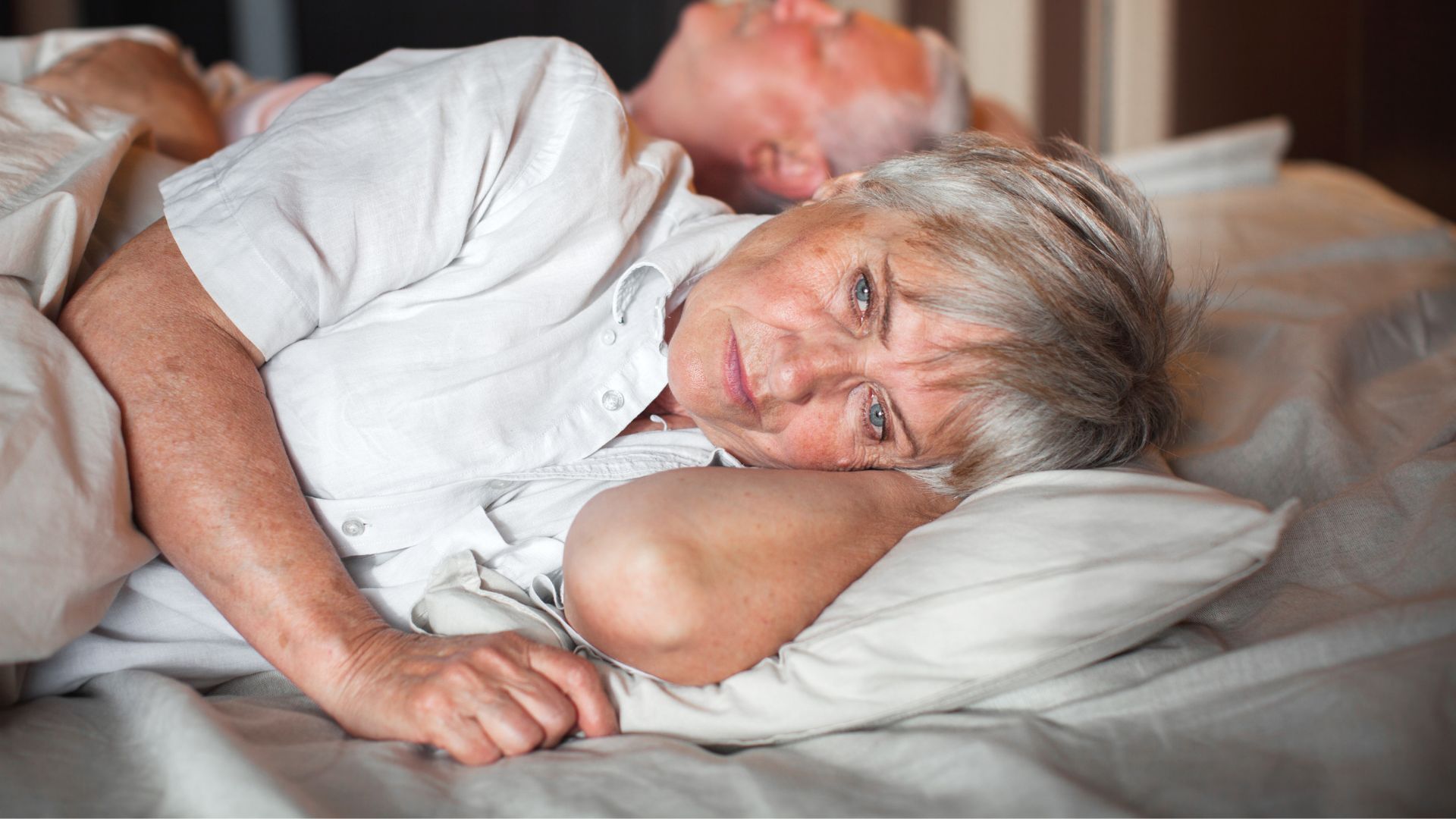
Here at Tom’s Guide our expert editors are committed to bringing you the best news, reviews and guides to help you stay informed and ahead of the curve!
You are now subscribed
Your newsletter sign-up was successful
Want to add more newsletters?

Daily (Mon-Sun)
Tom's Guide Daily
Sign up to get the latest updates on all of your favorite content! From cutting-edge tech news and the hottest streaming buzz to unbeatable deals on the best products and in-depth reviews, we’ve got you covered.

Weekly on Thursday
Tom's AI Guide
Be AI savvy with your weekly newsletter summing up all the biggest AI news you need to know. Plus, analysis from our AI editor and tips on how to use the latest AI tools!

Weekly on Friday
Tom's iGuide
Unlock the vast world of Apple news straight to your inbox. With coverage on everything from exciting product launches to essential software updates, this is your go-to source for the latest updates on all the best Apple content.

Weekly on Monday
Tom's Streaming Guide
Our weekly newsletter is expertly crafted to immerse you in the world of streaming. Stay updated on the latest releases and our top recommendations across your favorite streaming platforms.
Join the club
Get full access to premium articles, exclusive features and a growing list of member rewards.
Menopausal insomnia affects many women and can leave us feeling exhausted, anxious, and tired. Hormonal changes during this time, particularly fluctuating oestrogen and progesterone, are a big instigator for these sleep problems — but hot flushes, night sweats, and stress can also keep you awake at night.
The good news? There are treatments and lifestyle changes that can make a real difference. We talked to sleep and menopause experts, while looking at the latest research, to explore what causes insomnia, why it’s so disruptive, and the most effective strategies to help you reclaim a restful and restorative night's sleep.
What is menopause insomnia?
Insomnia is a sleep disorder, where you can find it hard to fall asleep, or stay asleep — a disorder which anyone can suffer from.
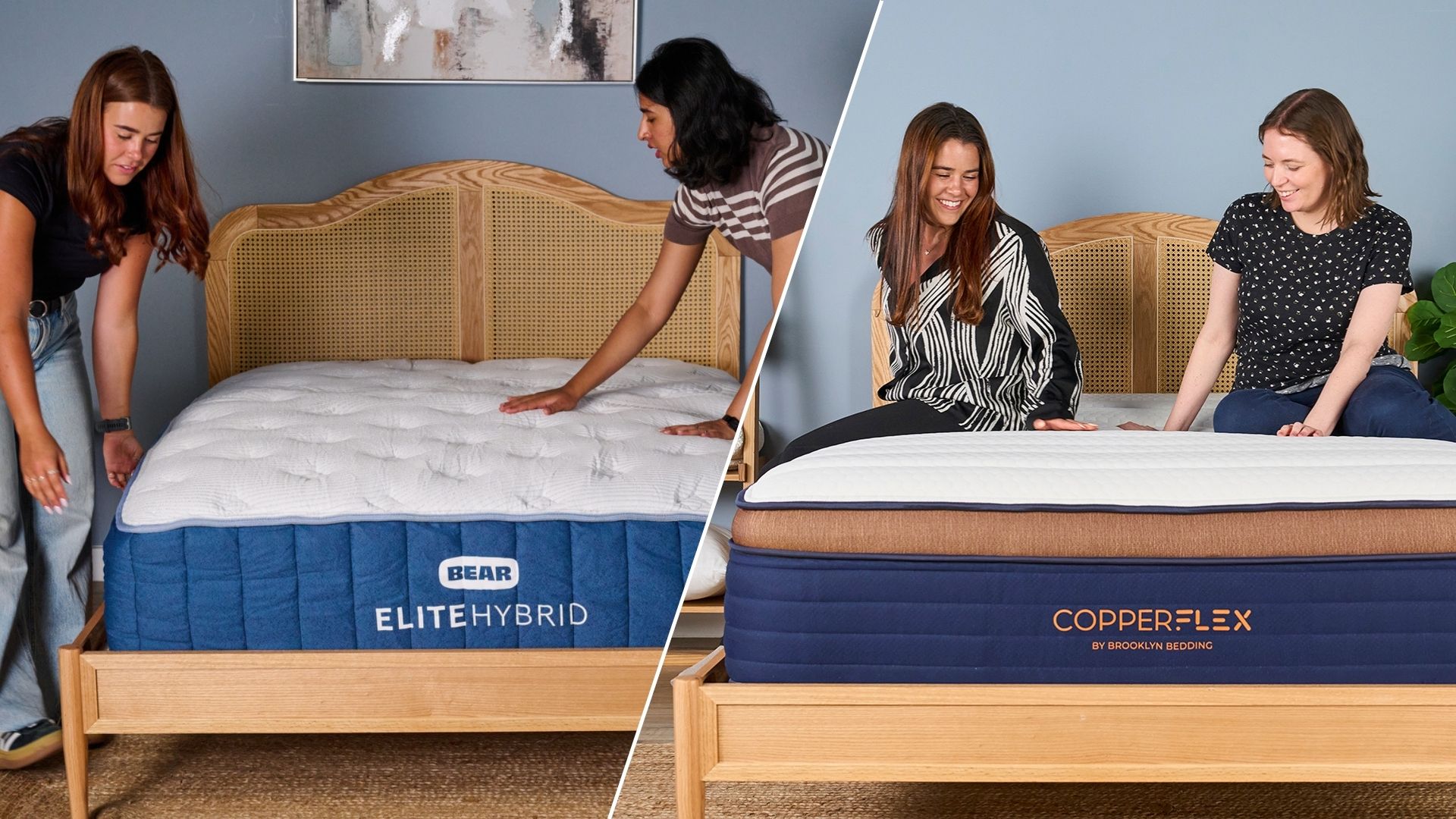
The best cooling mattresses of the year can help you battle hot flashes and night sweats during the menopause.
However, during the menopause, women may find it more prevalent due to “disruptions in the body, including hot flashes and night sweats, mood changes, urinary frequency, and joint or muscle pain that can wake you at night,” says Rosey Davidson, sleep consultant at Just Chill Sleep Solutions.
In fact, one recent study by Kalms showed that 90% of peri and menopausal women reported disturbed sleep, while over four-fifths (81%) suffered from insomnia.
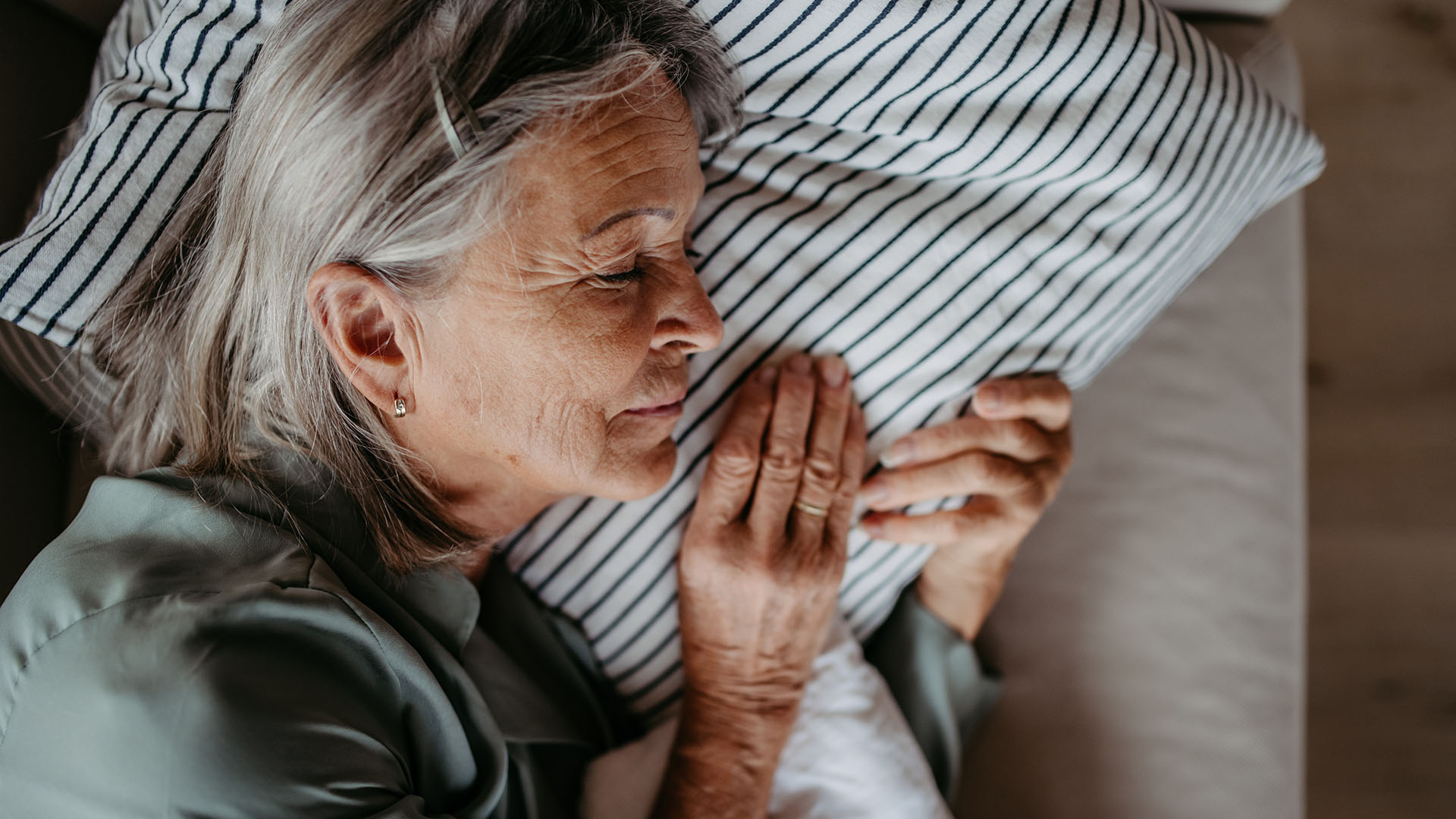
Why do menopausal women struggle with insomnia?
GP and Women’s Health Specialist Dr Deepali Misra-Sharp explains that sleep issues can be down to fluctuating hormones.
“Falling oestrogen affects the brain’s production of serotonin and melatonin, both vital for regulating the sleep–wake cycle,” the doctor says.
Get instant access to breaking news, the hottest reviews, great deals and helpful tips.
Progesterone, which has a natural calming effect, also declines, meaning women may feel more alert when they want to switch off.
“Add to this midlife pressures - caring for ageing relatives, work stress, or relationship changes - and it’s no surprise sleep suffers.”
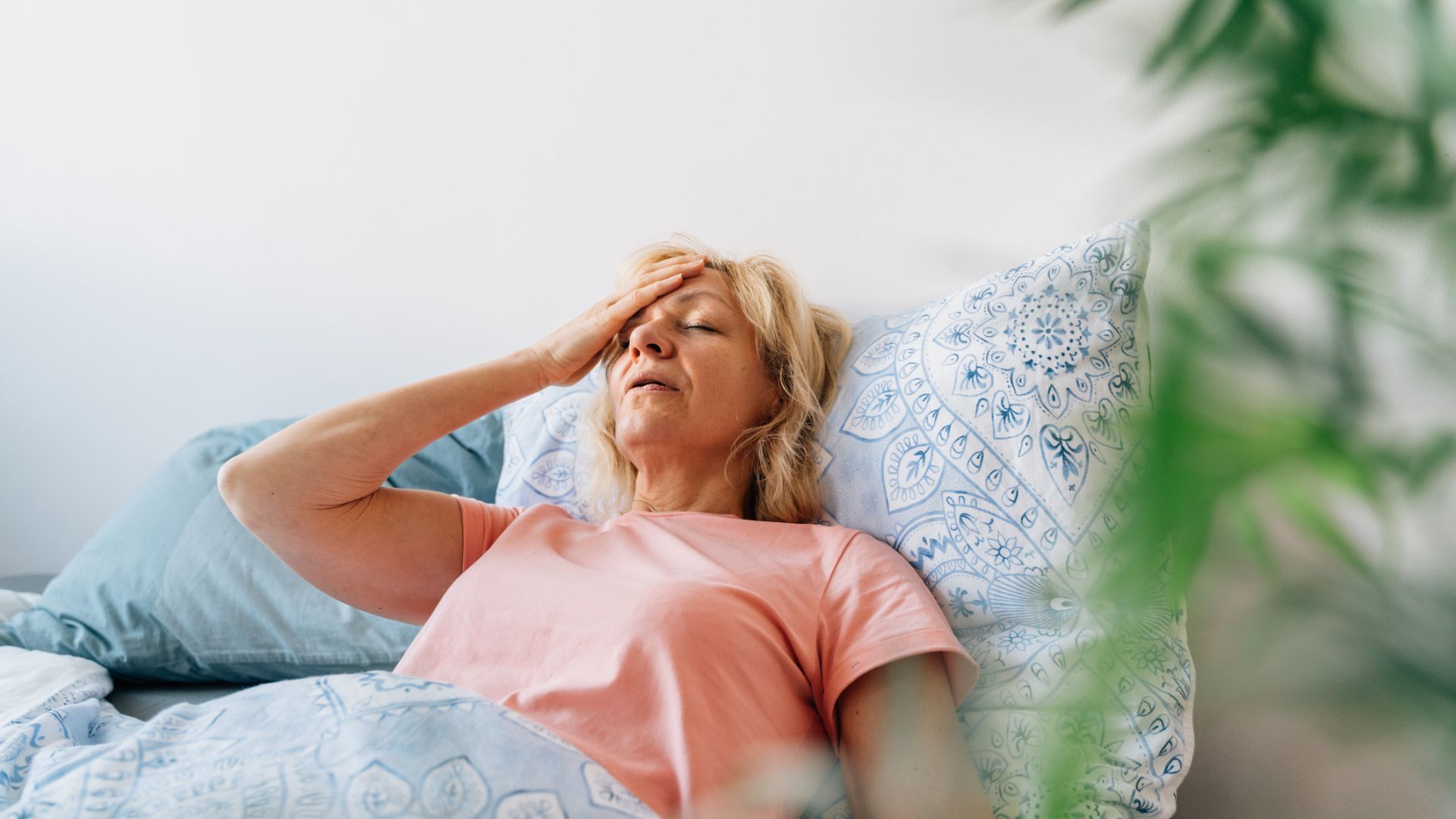
How to combat menopause insomnia
There are ways to avoid insomnia, even during the menopause. Below, the experts share their top tips.
Choose natural, breathable bedding
If you’re worried about night sweats, hot flushes or being uncomfortable as you sleep, Dr Misra-Sharp explains that “your sleep environment makes a real difference”. She advises using:
- Natural fibres such as cotton or wool for cooling bedding, which wick away moisture and allow airflow.
- Breathable mattresses, made from materials such as latex, tend to stay cooler than memory foam. Consider shopping the best cooling mattresses of the year.
- Layered bedding makes it easy to adjust temperature quickly through the night.
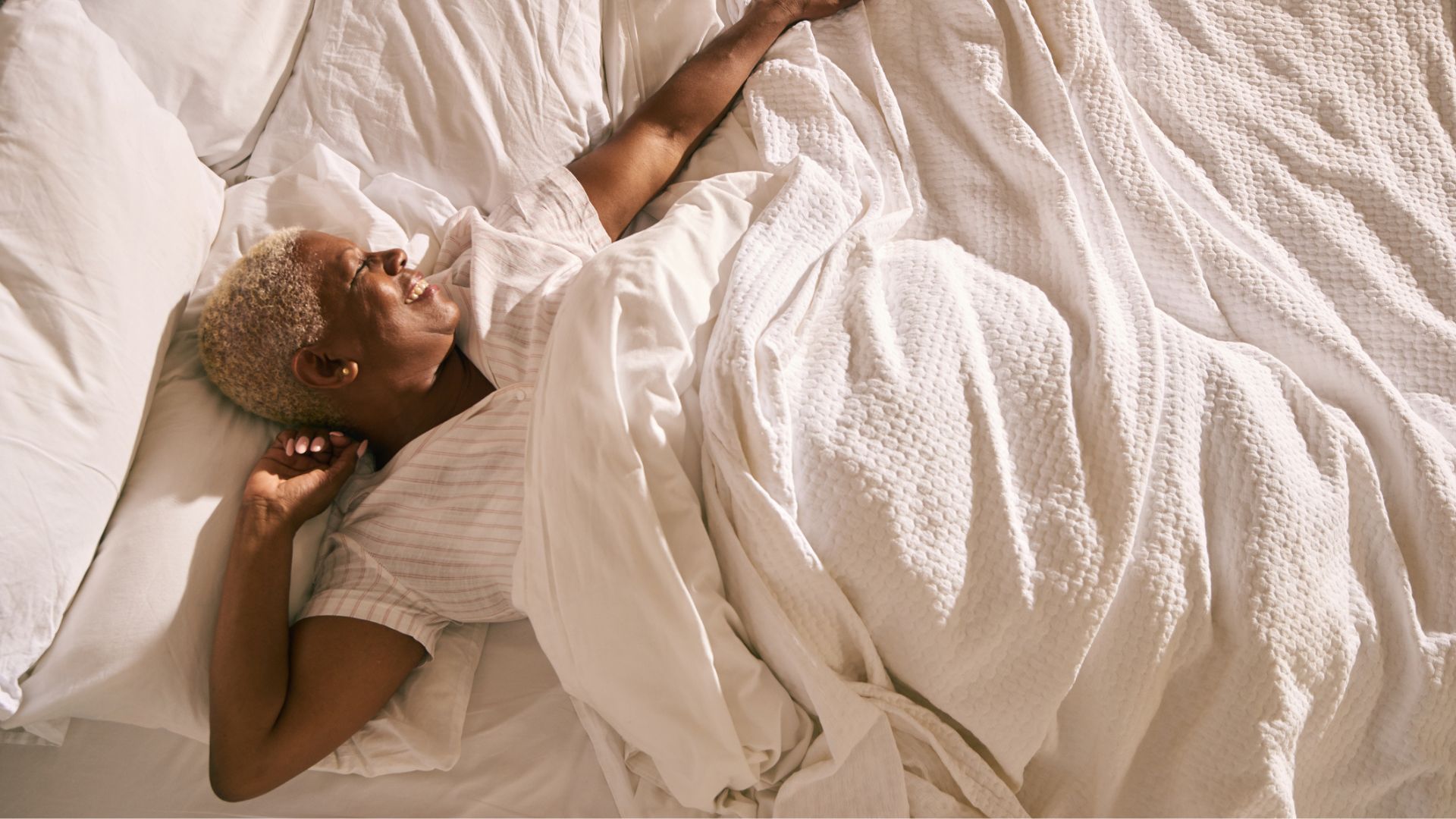
Create an anti-anxiety nighttime routine
If you find yourself getting anxious even before your head hits the pillow, Dr Khan says creating a relaxing nighttime routine can help.
“Stress and anxiety are major disruptors of sleep, so it’s important to find ways to calm your mind before bed. If you find yourself lying awake with racing thoughts, consider incorporating a relaxation technique.”
She adds that one effective method is deep breathing.
“Try the box breathing technique: inhale for four seconds, hold your breath for four, exhale for four, and hold again for four seconds before repeating the cycle,” she says.
“This simple exercise can help activate your parasympathetic nervous system, inducing a state of calm and helping you to relax.”
Misra-Sharp also adds that the following can help create a calming routine:
- Wind-down hour: dim lights, avoid emails and stimulating tasks.
- Warm shower or bath: which raises and then lowers body temperature, promoting sleepiness.
- Journaling or gratitude writing: this clears worries from the mind.
- Consistent rituals: a herbal tea, gentle stretches or reading a calming book, repeated nightly, help signal “bedtime” to your brain.
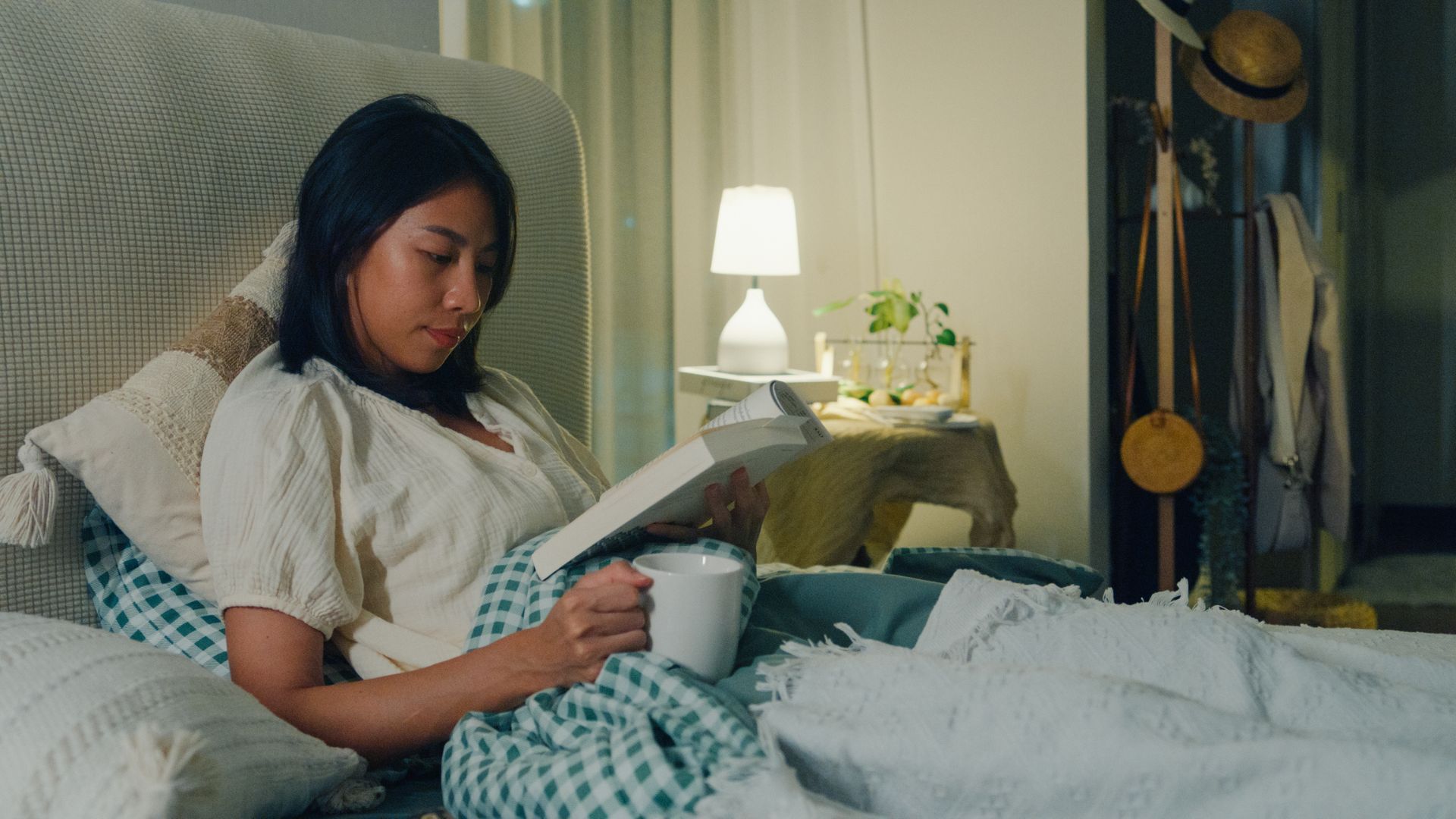
Practise excellent sleep hygiene
Dr Khan explains that setting the right environment can have a powerful impact on your ability to fall and stay asleep, which is why sleep hygiene is so essential.
So, how should you have your bedroom set up? “Dim the lights an hour before bed to encourage melatonin production, the hormone that supports sleep,” Dr Khan explains.
“Leave phones and other electronic devices outside the bedroom, as the blue light they emit can interfere with your body’s natural sleep-wake rhythm and hinder rest.”
You should also make your bedroom a calm, clutter-free space. “Keep it cool, dark and quiet, and opt for breathable bedding and pyjamas to help ease discomfort from hot flushes and promote uninterrupted sleep.”
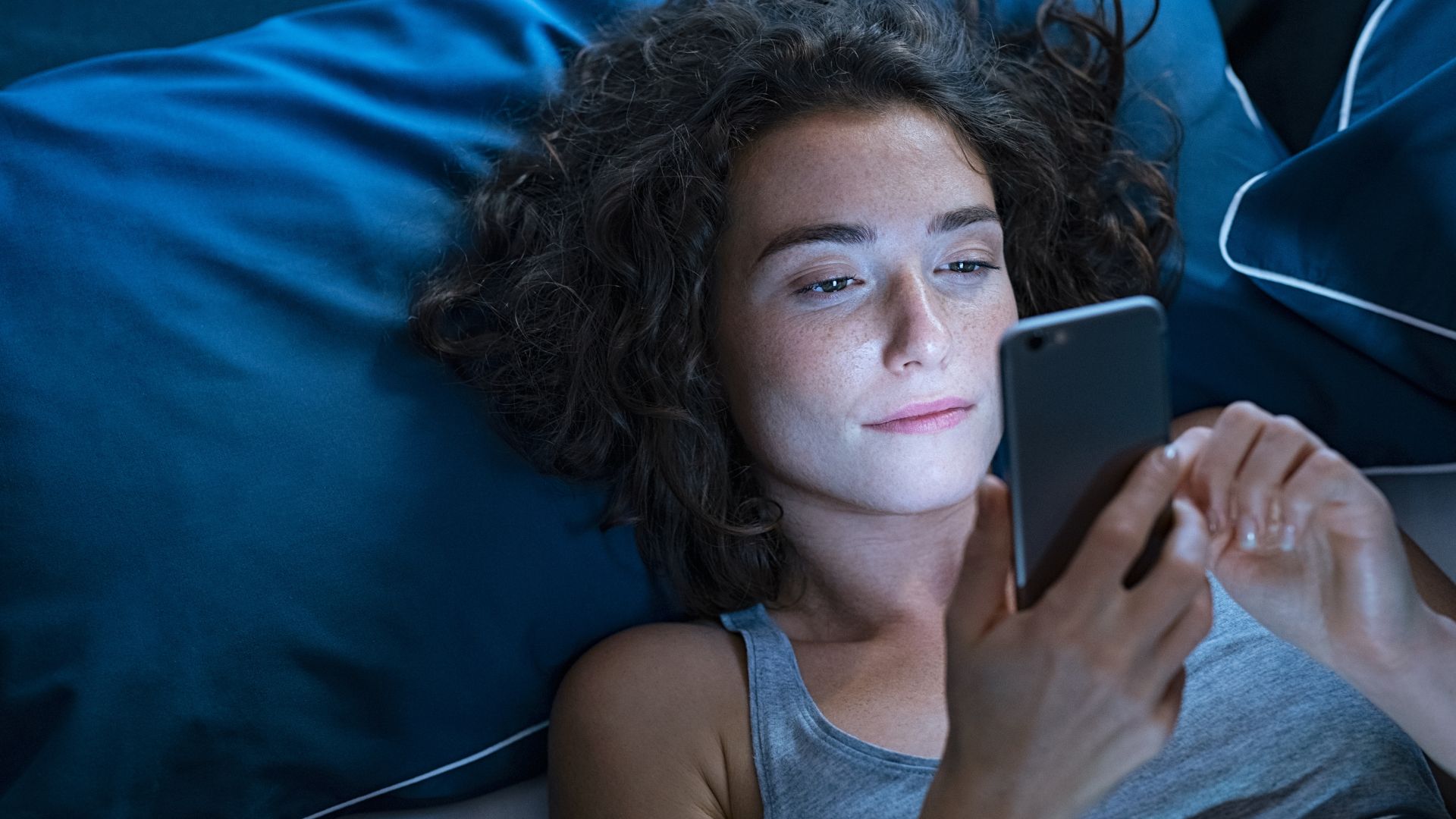
CBT-i
“Cognitive Behavioural Therapy for Insomnia (CBT-i) is the most effective non-drug treatment for persistent insomnia”, says Misra-Sharp. Research even shows that it’s as effective as sleep medication for insomnia.
But how does it work? She adds that it “tackles unhelpful thoughts (“I’ll never cope tomorrow if I don’t sleep”) and unhelpful behaviours (lying in bed awake, clock-watching).”
“Structured strategies such as stimulus control (getting up if you can’t sleep after 20 minutes) and sleep restriction (limiting time in bed to actual sleep time) retrain the brain to sleep more efficiently,” she adds.

Supplements
Davidson explains that before turning to supplements, it’s important to look at your diet, as many nutrients that support sleep can come from food.
“Magnesium, found in leafy greens, nuts, seeds, and whole grains, can support natural relaxation, and iron-rich foods such as red meat, lentils, and spinach may help reduce restless leg symptoms, which are common during menopause.”
Lavender oil could support relaxation in cases of anxiety-related sleep disturbance
However, if you can’t get enough from your diet, “magnesium supplements can improve sleep quality, and iron supplements may be recommended if blood levels are low.
Melatonin, which is widely available in the US but not over-the-counter in the UK, is a natural hormone that regulates the sleep-wake cycle and “can help reset disrupted rhythms, especially for early morning waking,” Davidson explains.
“We can increase our natural melatonin production by getting lots of light exposure during the day, and minimising light exposure in the lead up to bedtime.”
While Dr Khan also adds that some women explore natural remedies to support their sleep, such as valerian root or lavender oil.
“Studies suggest that valerian root may have calming properties, and that lavender oil could support relaxation in cases of anxiety-related sleep disturbance,” the doctor explains.
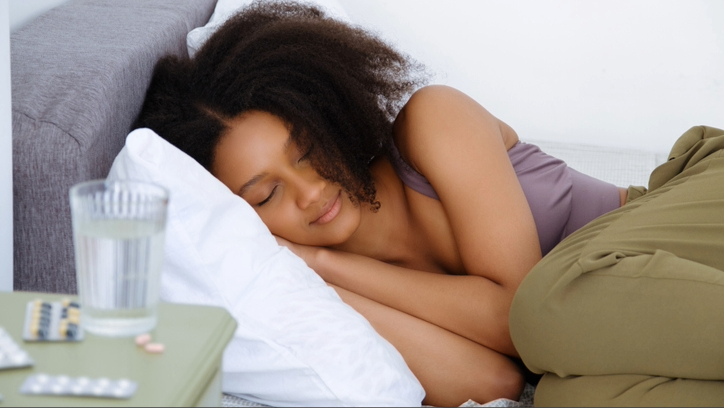
When to get medical help
If insomnia is affecting your daily life, mood or concentration, or if you suspect sleep apnea (loud snoring, gasping at night, excessive daytime sleepiness), speak to your doctor, says Misra-Sharp.
“Persistent low mood or anxiety are also important to discuss, as treatment options, from HRT to CBT-i to short-term medication, can make a significant difference,” she adds.

Sarah is a freelance writer who has been published across titles including Woman & Home, The Independent, and the BBC. Sarah covers a variety of subjects, including health and wellness. For Tom's Guide Sarah often writes about sleep health and hygiene, and interviews leading sleep experts about common issues such as insomnia and sleep deprivation.
You must confirm your public display name before commenting
Please logout and then login again, you will then be prompted to enter your display name.
 Club Benefits
Club Benefits










